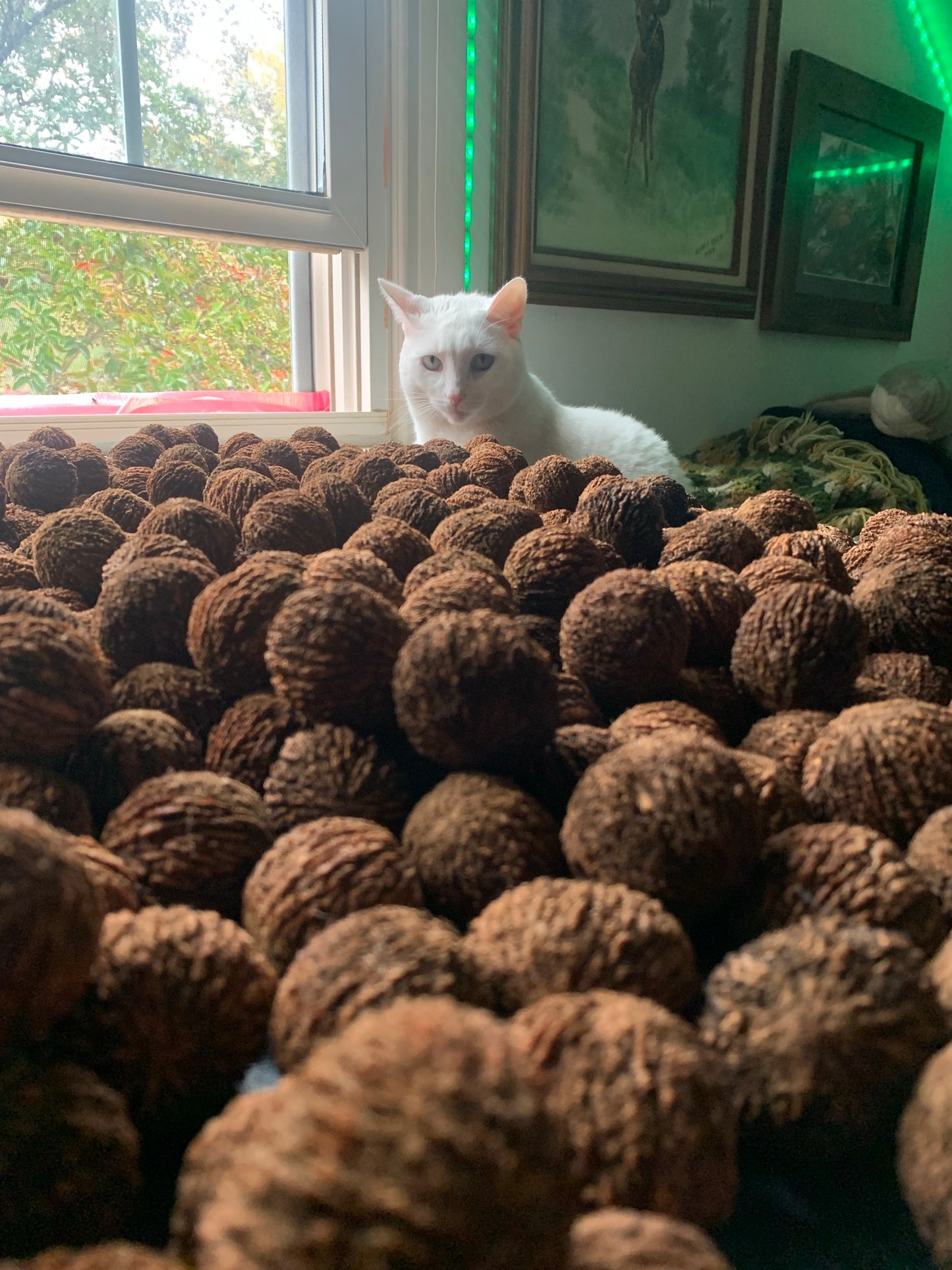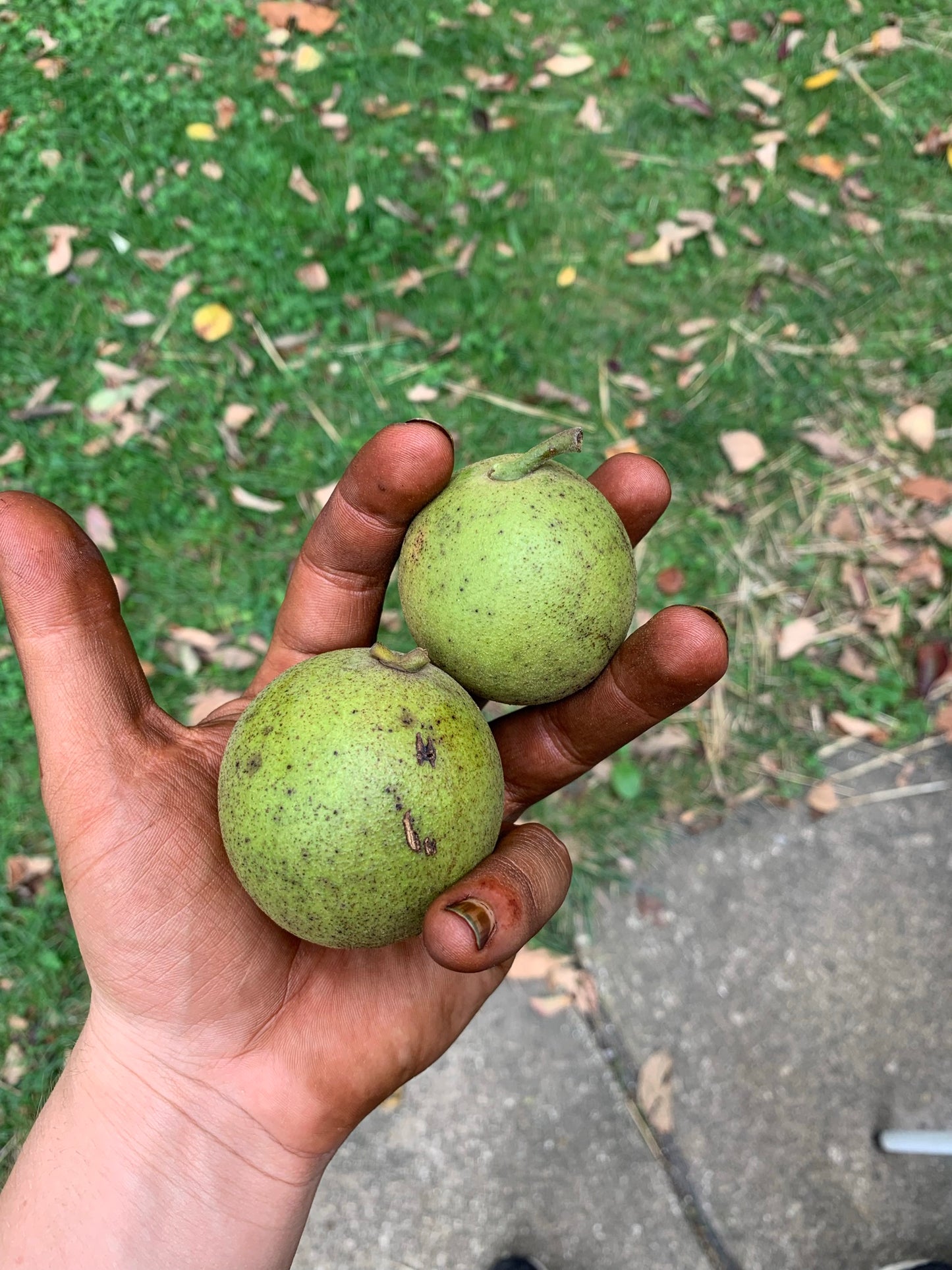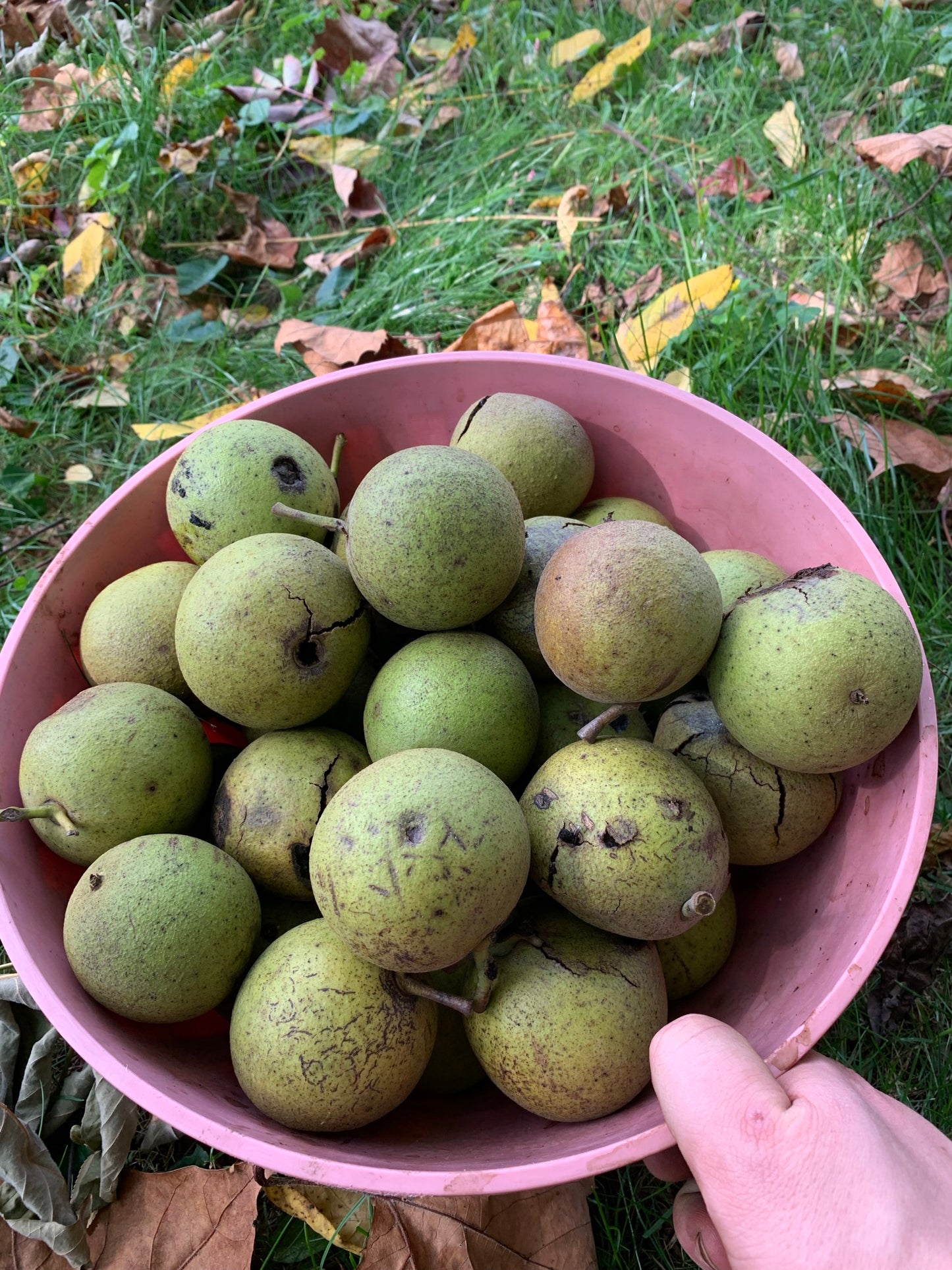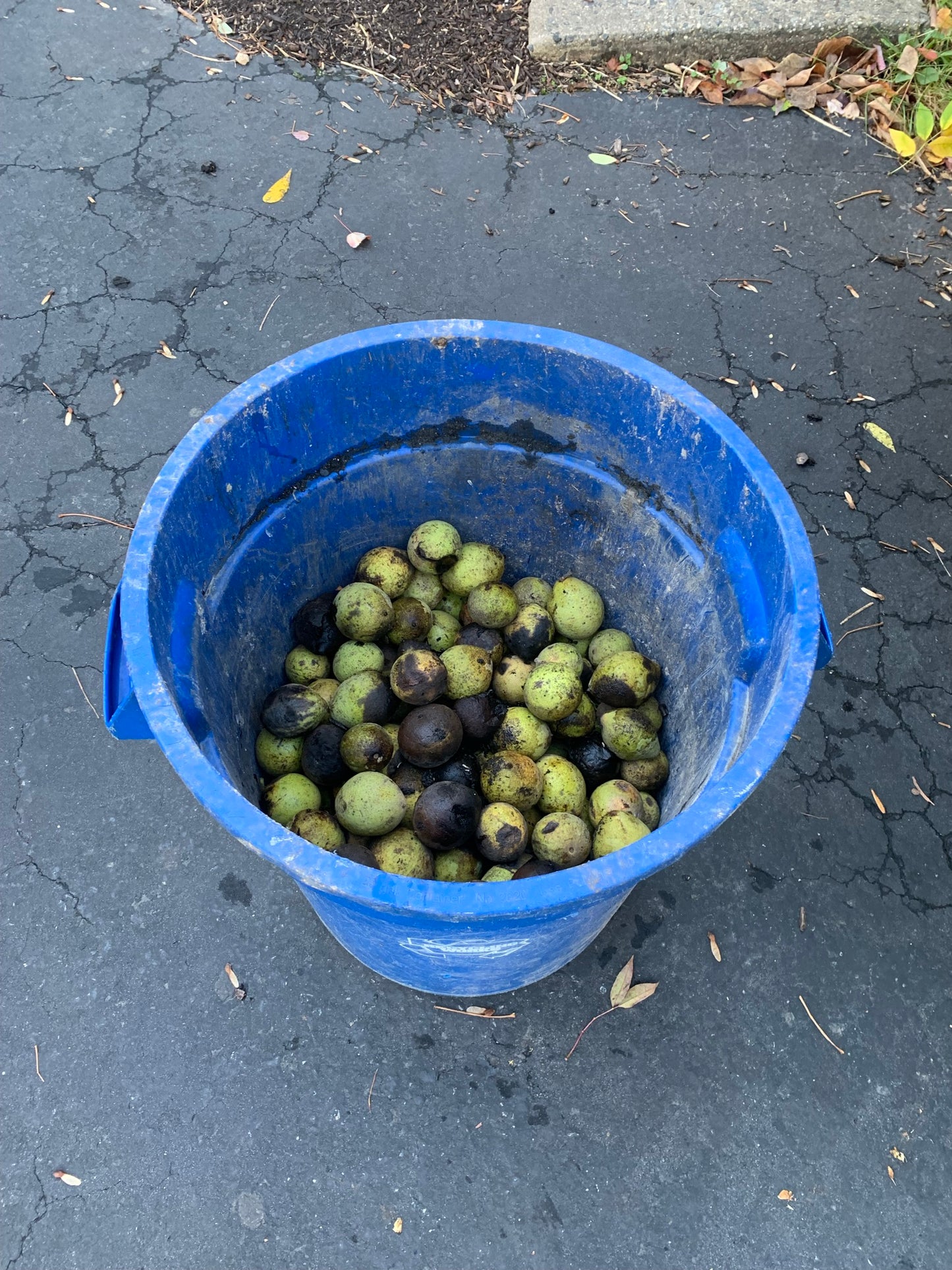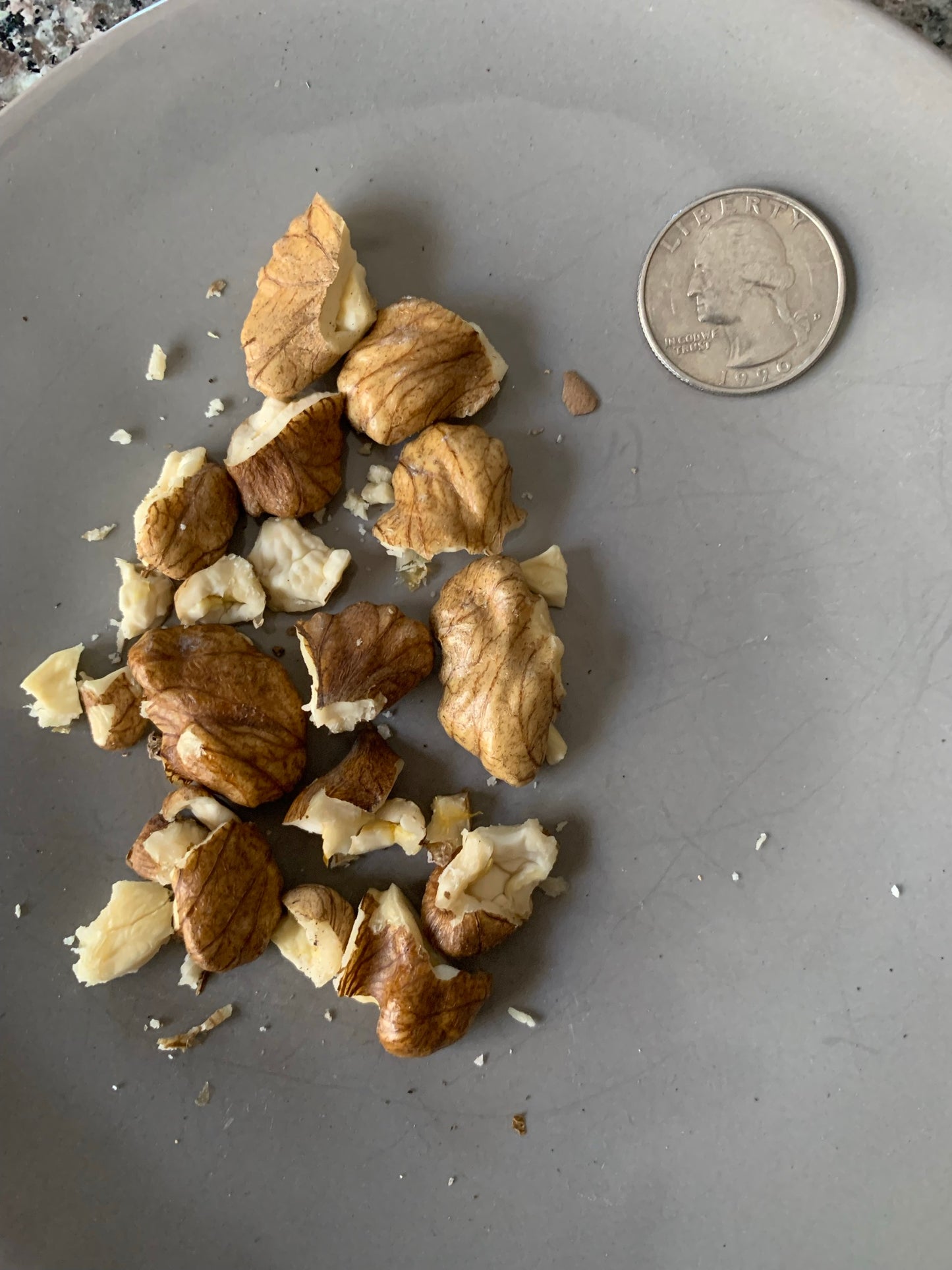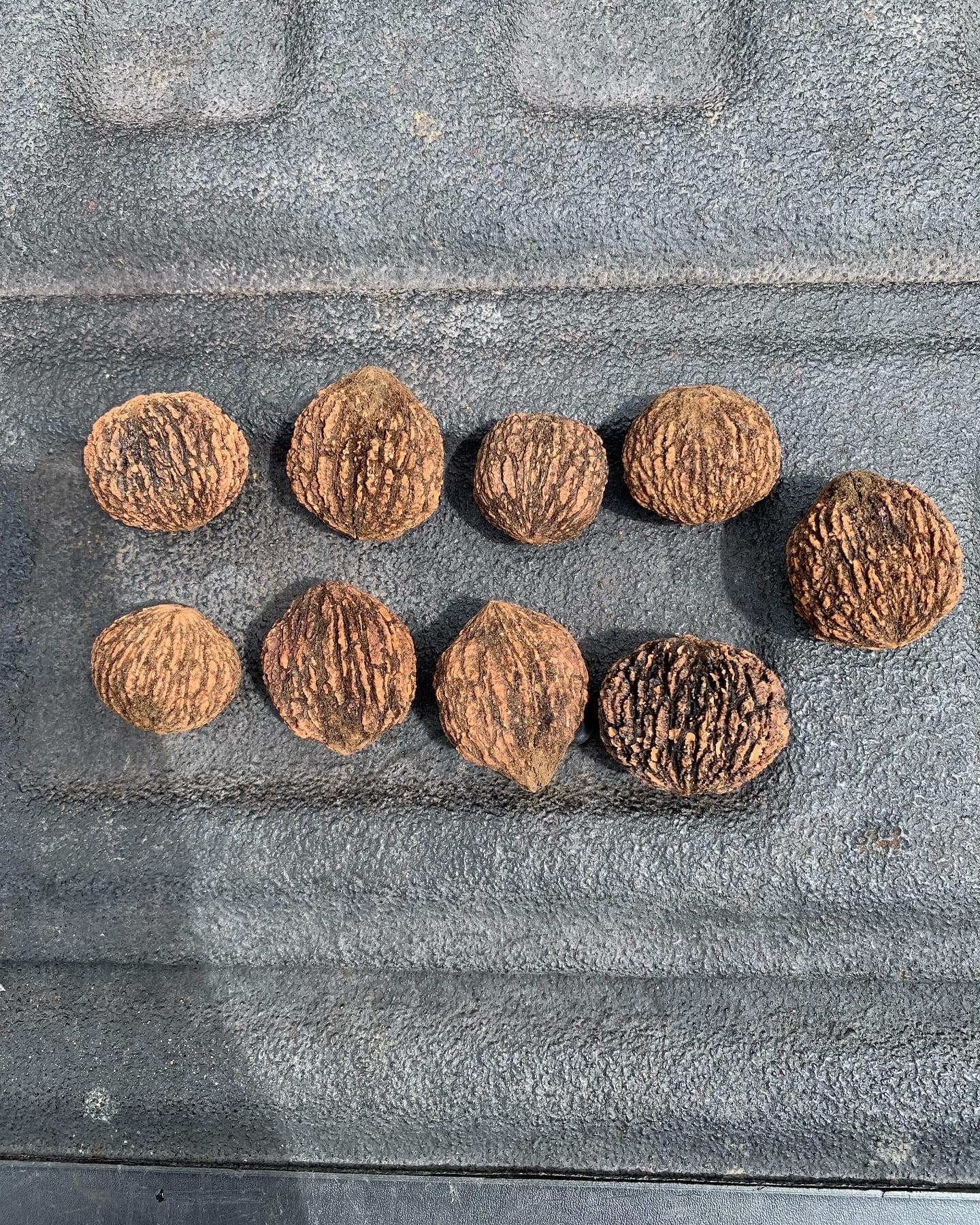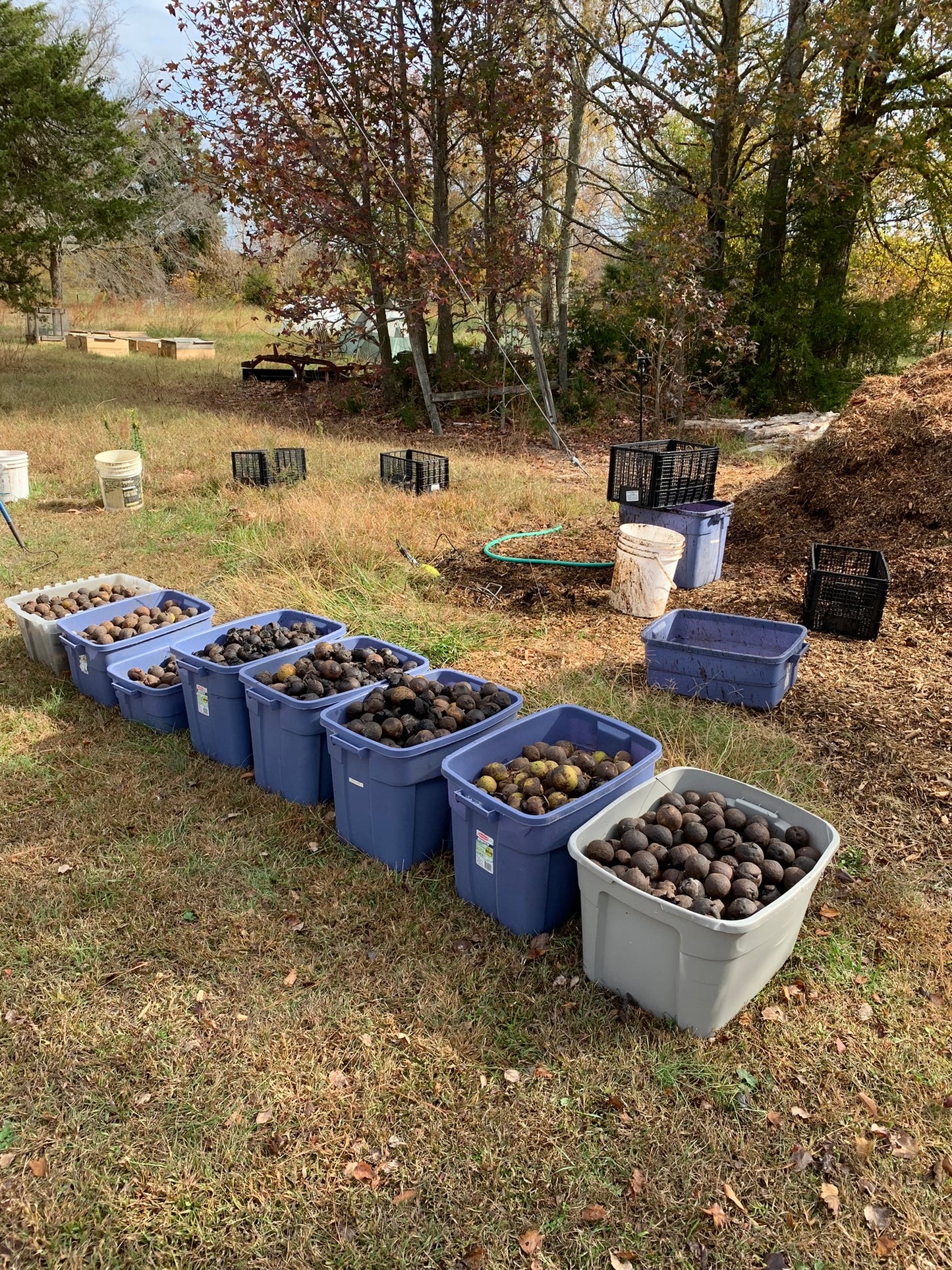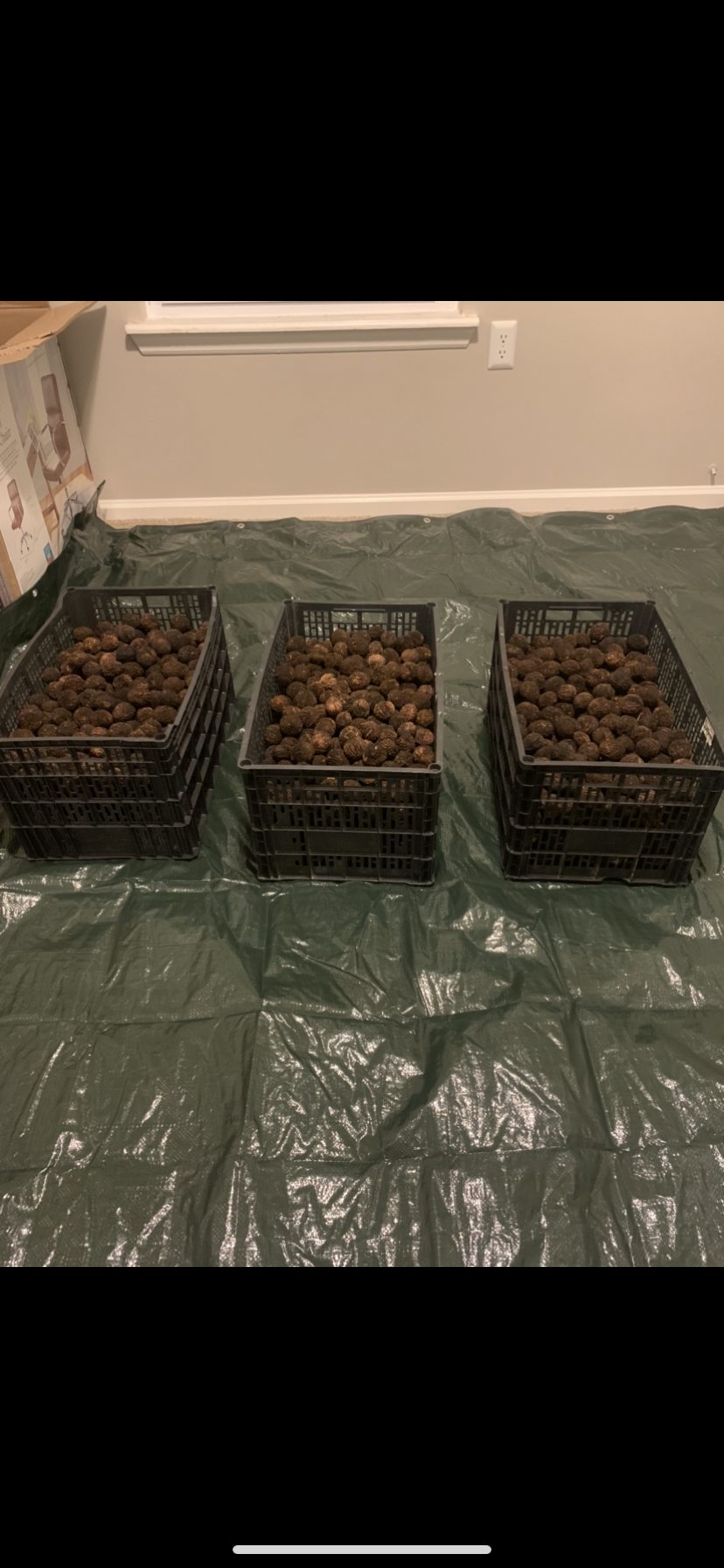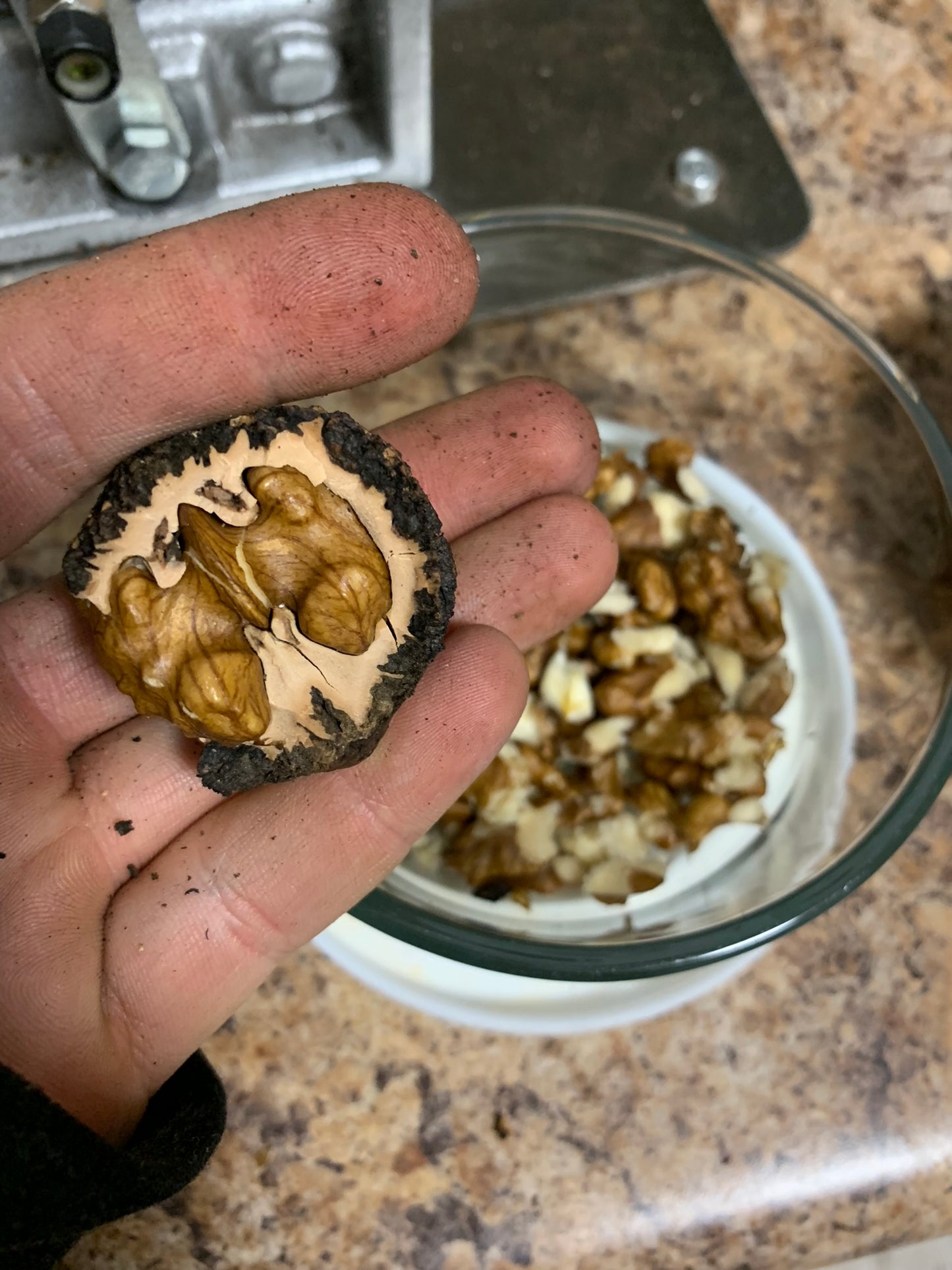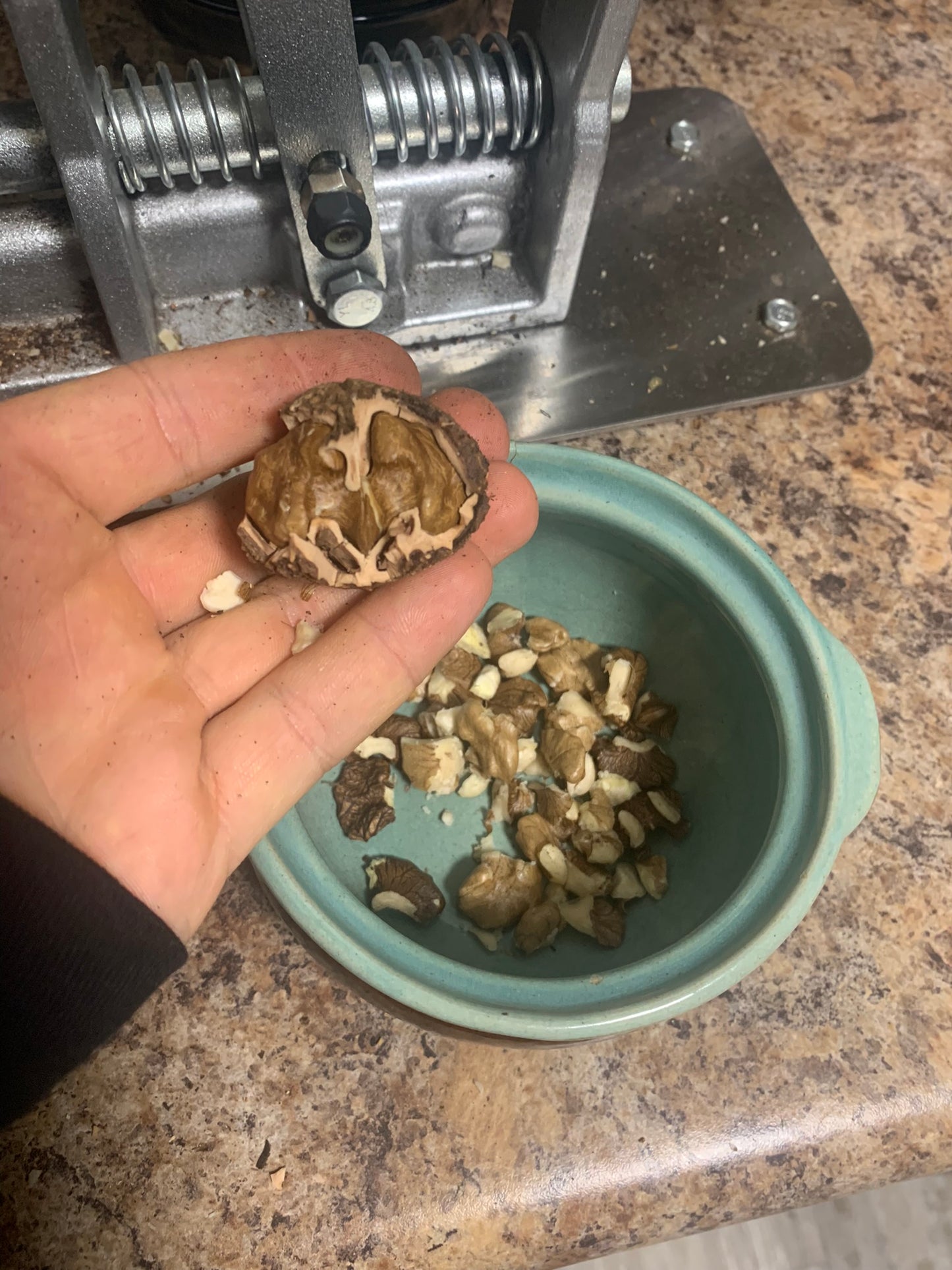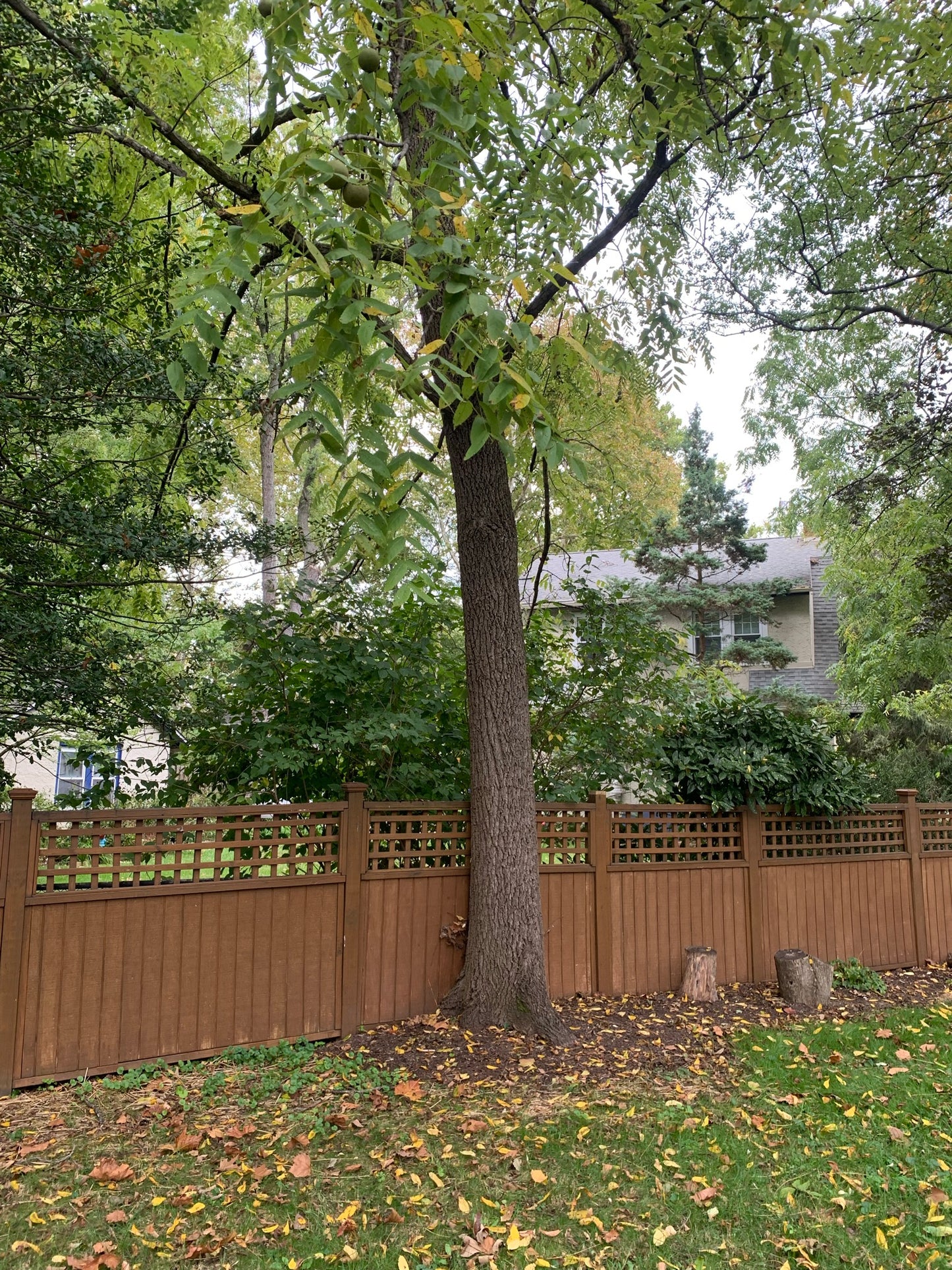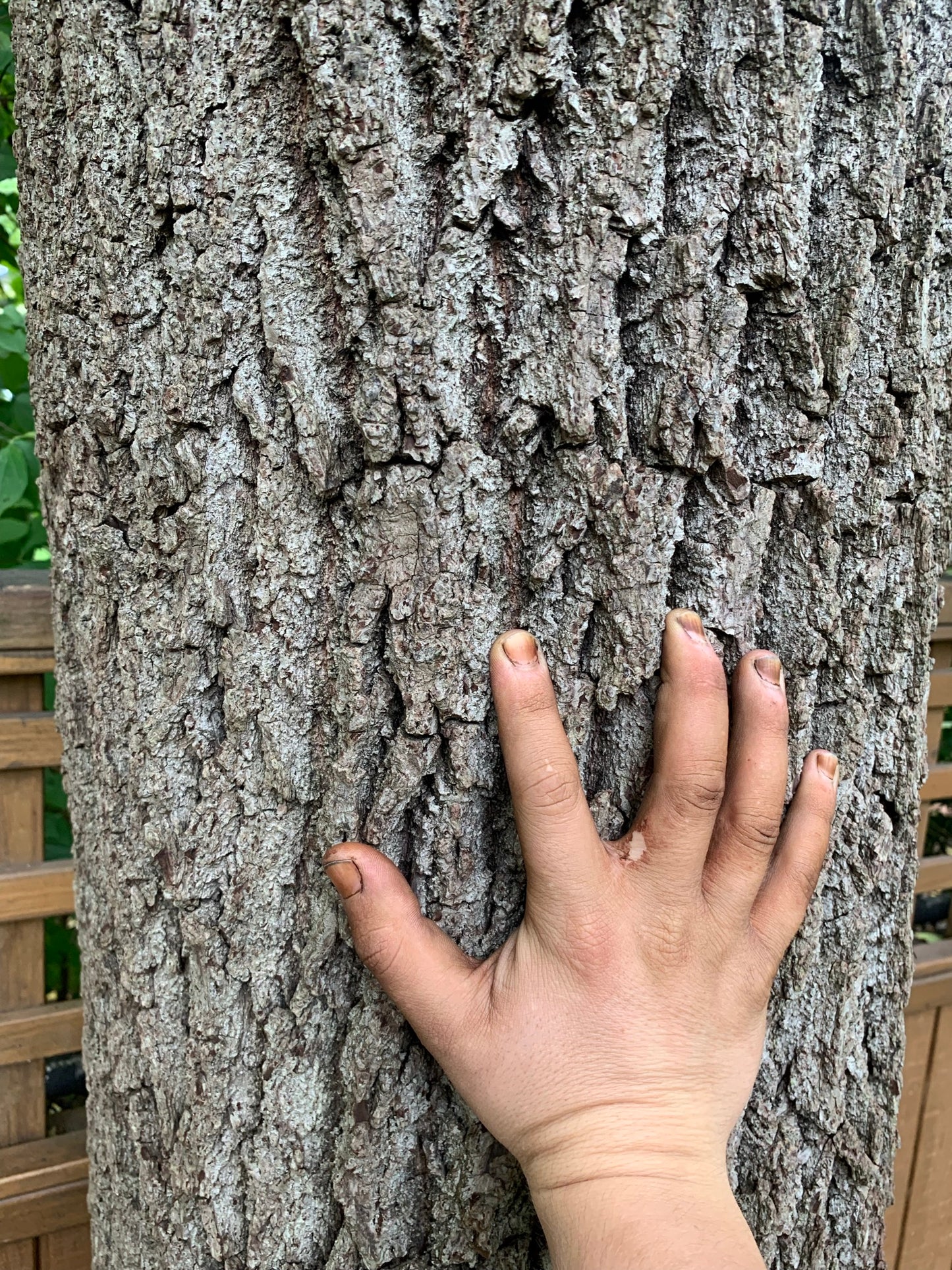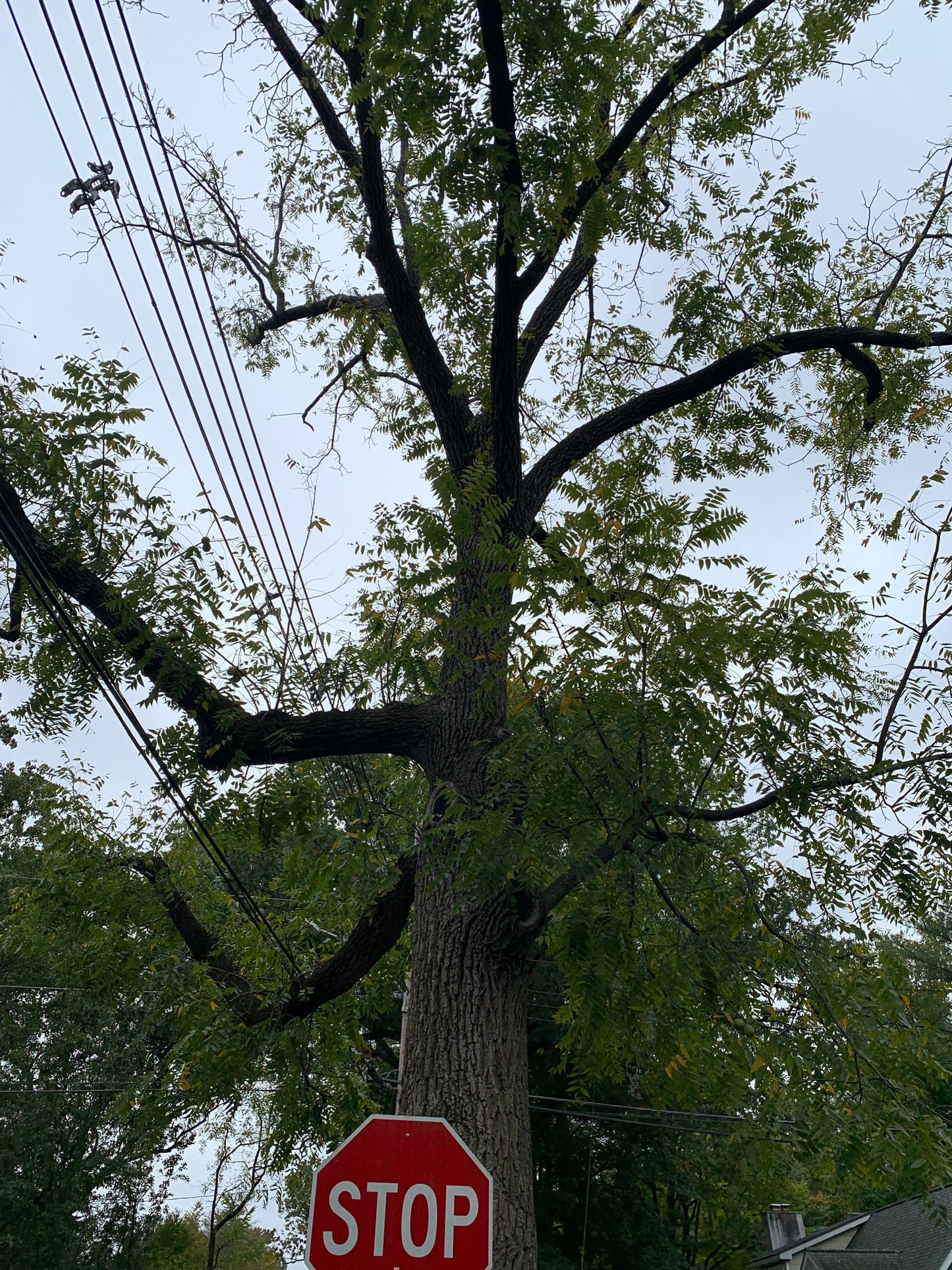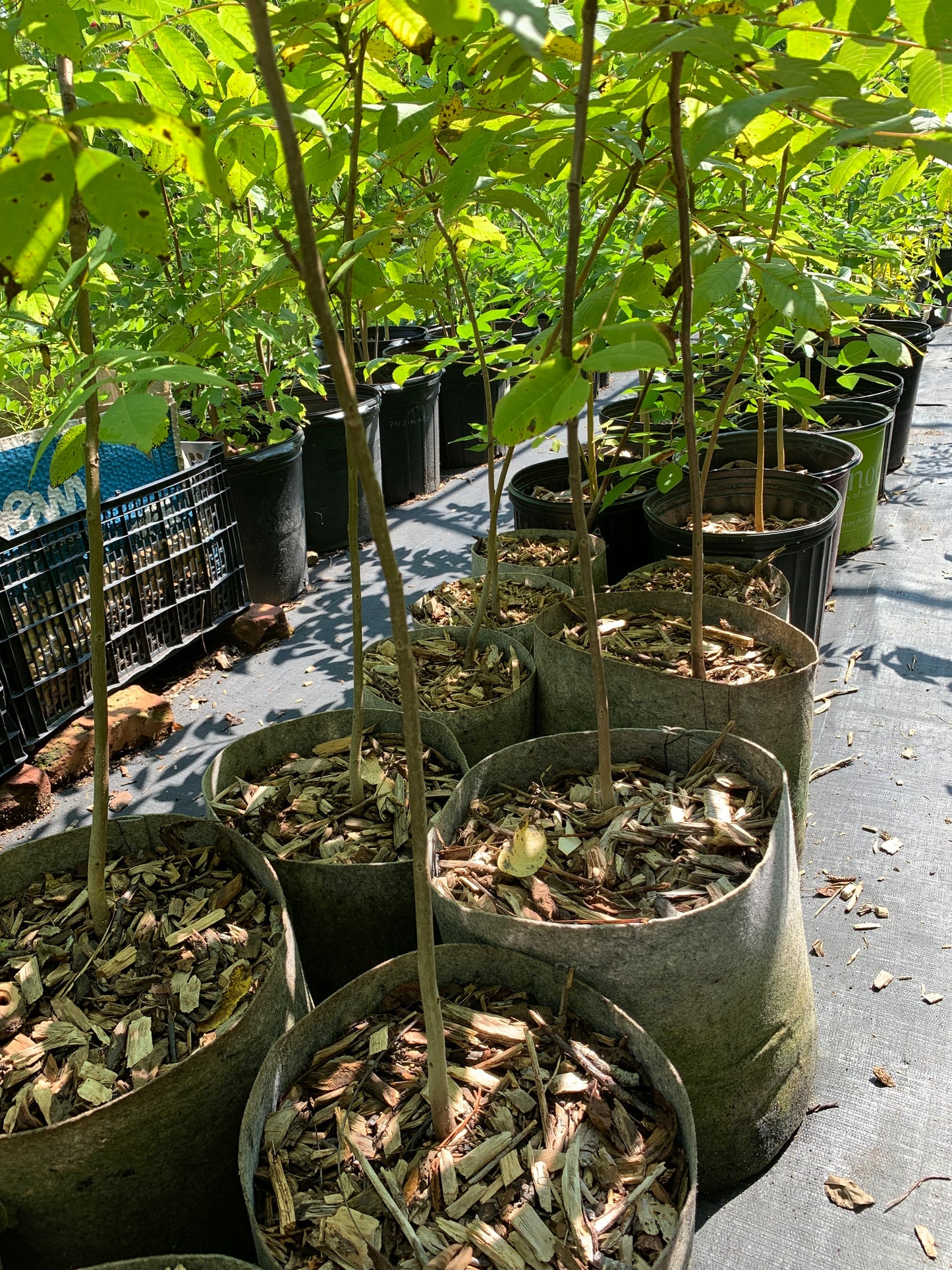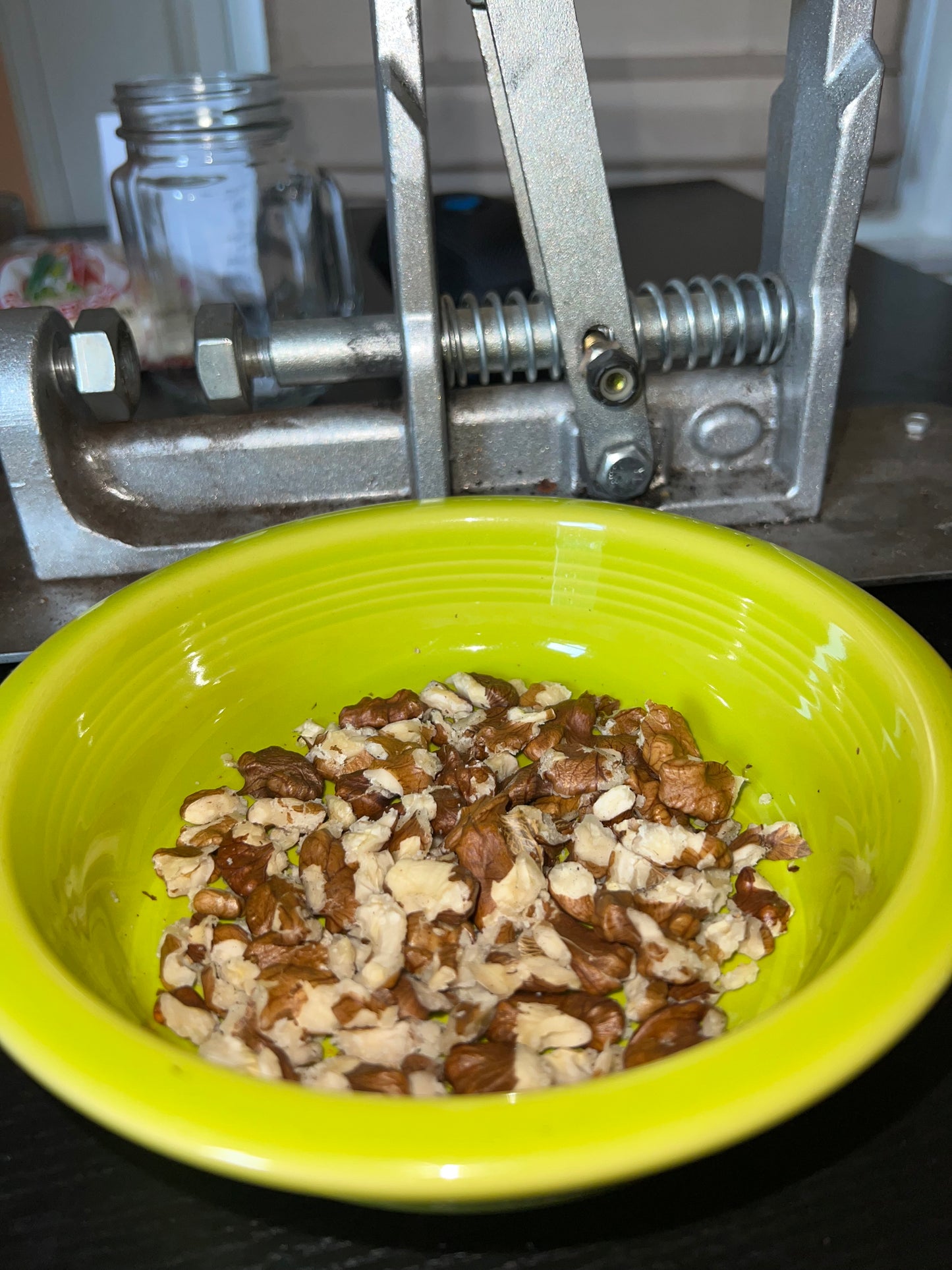Living Soil Tree Farm
Black Walnut
Black Walnut
Couldn't load pickup availability
Black Walnut (Juglans nigra)
NO WALNUT TREES CAN BE SHIPPED TO MO, KS, IN, MI, IA, NE, MN, TX, and CA DUE TO STATE REGULATIONS
Where to begin… without the black walnut living soil tree farm likely would not exist. Although I (Nick) have been in a love affair with trees since I was a baby it was an encounter with black walnuts in my mid 20s that really catalyzed me to explore a career working with food producing trees specifically. I had always heard that black walnuts were related to the English walnuts we get at the store and that they could be eaten but I did not know how. The shells looked like walnuts but they seemed very tough and I was not sure how to crack them and if they needed special preparation. In the fall of 2021 as the walnuts started to fall, I became especially curious and had a little bit of free time on my hands thanks to the covid pandemic. So, I decided to do some “youtubeing”. I watched one video of a family processing (removing the outer green husk) black walnuts. I was pretty interested but the magic really happened when they cracked the nut open. As soon as I saw the darker brown color of the nuts I was transfixed. Something awoke within me and I had to experience that food for myself. Seeing the black walnut cracked open for the first time convinced me there was something special about these trees.
It just so happens that I grew up with a black walnut tree in my backyard so I gathered a few nuts and got to work cracking them open. Honestly the first one I tried tasted rather unpleasant. It somehow had a chemical taste; I have had friends describe it as spray paint. I was disappointed. Also, I was nervous. I had pretty much never foraged wild food before other than beech nuts which I ate as a kid (a story for another time) & blueberries. There is little guidance around wild foods in our culture. Well, I was determined to try them again. After some research online I found out that the walnuts taste better after a dry/cure period for 2-4 weeks. So, I waited. When I tried them again it was a completely different experience. The taste was amazing and unlike anything I had ever had before. I was in love. I never wanted to eat a store-bought English walnut again. There just was no comparison. The best way I can describe it is walnuty with a floral thing going on. Its much more intense and complex than bland grocery store English walnuts. I will note that fresh english walnuts from high quality trees do taste pretty good, just not as good as black walnuts.
I could not believe my whole life I lived under this tree and was unaware of this gift she provides. They tasted so good! As I have gotten more into walnuts this seems to be a common story. Many people have reported to me that the first time they tried the nuts was very bad but that after coming back to it another time they got hooked. The second try seems to be a totally different experience for lots of folks. I have also met some people who enjoy them the first time around. And now that I know the flavor better, I do sometimes eat the nuts fresh without curing and find no issue with the taste.
Anyway, I went nuts after that first encounter. The fall of 21’ was a bumper crop for black walnuts in eastern PA where I lived at the time. I gathered over 100 gallons of nuts and processed them in my parent’s backyard in the Philly suburbs. For the rest of the time that I lived there I had a huge chest of walnuts to eat from. The dehusking and cracking of the nuts can be intimidating but I really enjoy the process. I share that process on my social media if you'd like to learn more. I look forward to the processing work each fall, it is a lot of fun. A hammer, rock, or specialty black walnut cracker is needed to bust open their thick shells. They are so worth the work!
Black walnut is a large tree native to the east coast of the US. Typical max heights range from 100-130 feet. Grown out in the open trees will be shorter and wider. Commonly found in riparian areas the black walnut likes water but will grow in drier areas (although growth will be slower). The trees can self-pollinate but to get good nut production multiple trees are required. The wood in incredibly valuable and especially beautiful. Walnut wood is beautiful and rot resistant. Additionally it burns well as firewood.
The nuts have long been eaten by humans and wildlife. Select cultivars have been bred for timber and for nut production. The majority of this selection work occurred over hundreds of years of relationship between walnut trees and native peoples. The nuts are extremely nutritious and have the highest protein content of any tree nut. They are also very high in o-mega 3 and polyunsaturated fats as well as minerals, vitamins, and antioxidants. The hulls can be used to make an anti parasitic tincture. Grubs which grow in the husk can be used as chicken feed which also helps to deworm the chickens. The shade cast by black walnut is not very dense and allows for other native understory plants & grasses to thrive.
Walnut seed seed must be cold stratified to experience good germination rates. This can be accomplished in a fridge but we opt for outdoor stratification either in garden beds or buried in buckets. If you want to learn more about storing walnut seed checkout our other social media. As with other trees black walnuts love mulch and being planted near other woody plants (so long as they all get good access to sunlight!).
A note on the potential future of east coast walnut production.
There are cultivars of black walnuts with thinner shells and larger nuts. Many of these varieties crack out much easier than typical wild black walnuts. Future breeding could improve these qualities. Currently at the nursery we are working to plant out seedlings with hopes graft some of these cultivars in the future. Additionally we are excited to get seedlings of these grafted varieties planted since walnut seedlings often resemble their parents!
We are very excited about the potential food source black walnuts provide. Wild trees already offer an extreme abundance of food but are difficult to process in large amounts at a small scale. Industrial equipment is required but available to groups that want to process black walnuts at scale. As a culture we have not invested in this infrastructure so although it is available it is uncommon. Equipment can easily overcome the difficulties of wild walnuts but breeding work could also create black walnuts that crack out as easy as the English walnut thus negating some of the equipment needs.
Black walnut grow prolifically on the east coast without any help from humans. The calorie and nutrient potential of black walnut culture on the east coast is hard to overstate. To get there we need to invest our time and resources into breeding and infrastructure. Seems worth doing to me!
We would love to talk about black walnuts with you. If you have questions or comments please reach out. If you come across a black walnut tree with superior qualities we would love to trade for seed or cuttings to incorporate into our work here!
2025 selections
Hershey
During the mid 1900s John Hershey made his career growing and grafting many types of trees native to the east coast and Midwest. One of those was black walnut. John collected superior selections from all across the country and brought them to his farm in PA to propagate further. Though much of his farm has now been lost to development pieces of it remain and a good number of persimmon trees are still standing. John's the trees have stood the test of time. These are hardy trees with excellent quality nuts. There are very few places where you can find so many different high quality black walnut varieties growing in one place. If you want to do walnut breeding work one of the best ways to start is with seed from an orchard such as John's.
2024 was a bad year for walnut seed. There were few trees at the Hershey Nursery who produced nuts in 2024 but there were enough to gather seed and eat a few too! In a way 2024 allowed us to offer seed from potentially drought tolerant trees since 2024 was also a bad drought year in PA. The parent trees for this selection include a range of qualities. Some trees make nuts with very large pieces of nut meat, thin shells, ease of cracking, and various combinations of these traits.
Victory Lane
Seed for this line comes from a single tree near the nursery in Bassett that produces what I consider very nice nuts. The nuts are average size but crack out with ease in a black walnut cracker. The important trait here is that the nut falls out of the shell in quarters once the shell is cracked. Shell thickness and nut size are average. Kernels have a good taste and are of pale color.
2024 Selections
John Hershey - BARE ROOT
During the mid 1900s John Hershey made his career growing and grafting many types of trees native to the east coast and midwest. One of those was black walnut. John collected superior selections from all across the country and brought them to his farm in PA to propagate further. Though much of his farm has now been lost to development pieces of it remain and a good number of persimmon trees are still standing. These trees drop larger than average nut that crack out relatively easy. His the trees have stood the test of time. These are hardy trees with excellent quality nuts. There are very few places where you can find so many different high quality black walnut varieties growing in one place. If you want to do walnut breeding work one of the best ways to start is with seed from an orchard such as John's. Roughly 50% of our seed for this batch came from the Walnut trees across from the Quaker Meeting House in Downingtown PA. The remaining 50% was seed collected from other areas of the Hershey site by Buzz Fervor.
These trees are roughly 2 feet tall
Akiva Siler - BARE ROOT
Many of you may be familiar with Akiva's work in the tree realm. If you are not familar you should definitely check out Akiva's books, youtube channel, and nursery! Akiva has ben working with trees for many years and is known for producing high quality trees at his nursery in NY. Over the years Akiva has found and propagated seed from countless outstanding mother trees. This selction of black walnuts came from seed collected by Akiva at the orchards of Cornell University. This orchard has many cultivar quality black walnut trees.
These trees are roughly 2 feet tall
2024 Mix -BARE ROOT
Trees in this selection were grown from seed gathered at many sites around Hillsborough NC. These mother trees are all of mature age and good health and many of them have produced large crops several years in a row. The nuts of are average wild quality.
These trees are roughly 2 feet tall
Materials
Materials
Shipping & Returns
Shipping & Returns
Dimensions
Dimensions
Care Instructions
Care Instructions
